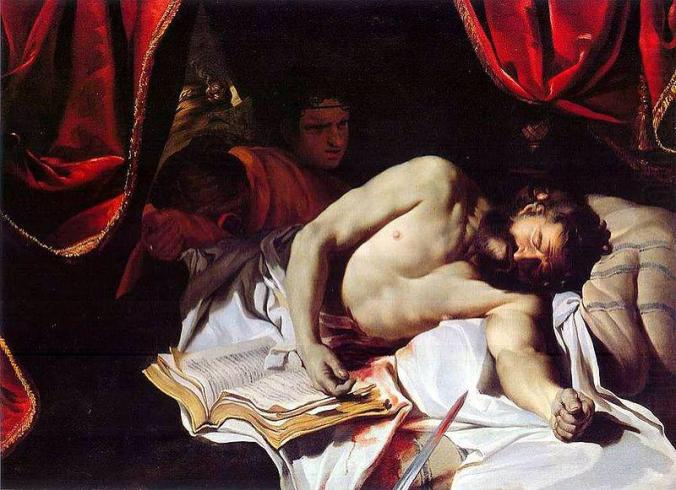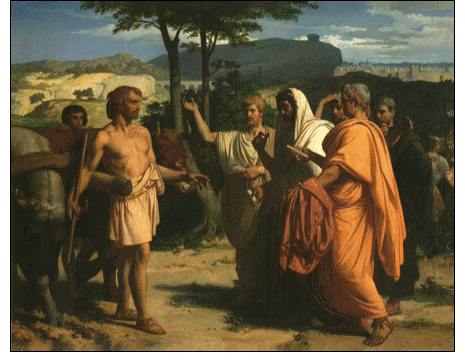In my last posted I had noted the fact that, far from being a rampaging, unruly, and unthinking mob – the American Revolutionaries had casted their revolt against the British Crown in terms of an Anglo-Saxon tradition of Freedom and limited government. In their eyes, itwas the Hanoverian King George III and his Tory allies that were innovators and violators of this patrimony handed down to them from their ancestors.
Many of the leaders of the Revolution looked back at classical models dating to ancient Greece and Rome for inspiration in their struggle. One particular figure of note would be Marcus Porcius Cato Uticensis, known in later history as Cato the Younger.

Cato was a Roman statesman, orator, and Stoic philosopher noted for his moral integrity and stubbornness. He was a champion for republican ideals during a time when the Roman Republic was riven by corruption and ambition. Because of his stances, Cato came into conflict with Julius Caesar…….and lost.
Refusing to submit to the growing despotism in Rome, Cato committed suicide with a sword after reading a copy of Plato’s Phaedo, the dialogue on the soul.
The English playwright Joseph Addison commemorated Cato’s struggle to defend the Roman Republic in his play, Cato, a Tragedy. The play was actually a subtle criticism of the growing power of the British monarchy against the liberties and freedoms enshrined in tradition. For understandable reasons, the play was quite popular in Ireland and the American Colonies. George Washington even had a production of the play put on for the Continental Army during their time in Valley Forge.
Washington himself modeled his own political/military career of yet another classical hero, Lucius Quinctius Cincinnatus.

Cincinnatus was a Roman patrician of the Early Republic who worked on his own farm until an invasion by the Aequians, Sabines, and Volscians into Roman lands. Cincinnatus was made Dictator of Rome, given absolute power to rectify this dire situation.
15 days later after beating Rome’s enemies on the battlefield, Cincinnatus resigned his position and returned back to his farm. The relinquishing of power was considered a great act of a virtuous citizen, for a military general could easily turn himself into a tyrant. Washington took inspiration from Cincinnatus’ example, surrendering power over the Continental Army at the end of the War of Independence and doing so again at the end of his Presidency.
By relinquishing power in this manner, Washington would guarantee a tradition of a smooth transition of power. Every few years, Presidents would come and go – and this is the way things would be.